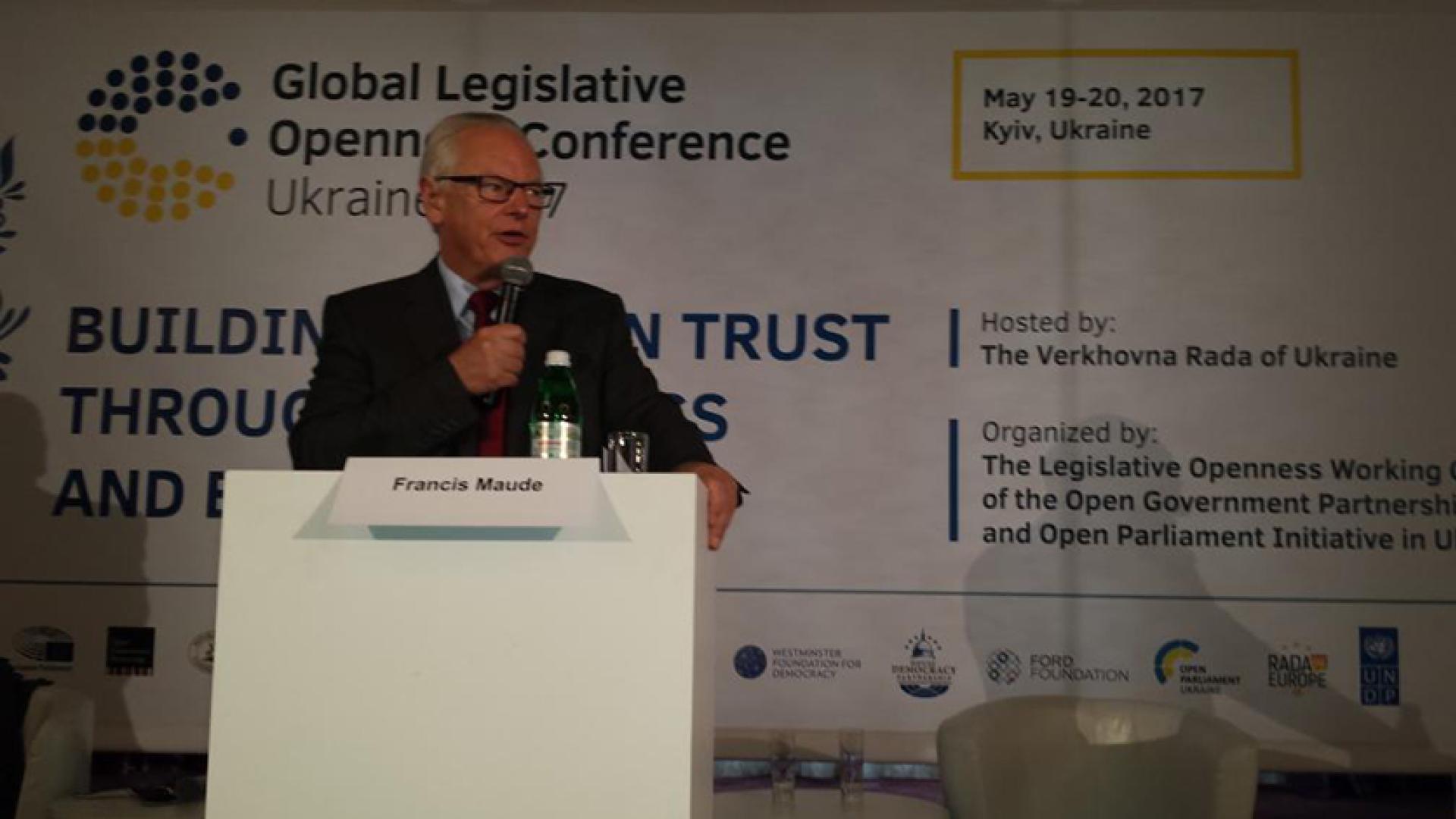Building citizens trust through openness and engagement

The conference opened with an inspiring key-note address on “envisioning a democratic renaissance”, by Rt. Hon. Francis Maude, former Minister in the Cabinet Office (UK) and former co-chair of the OGP Steering Committee.
The first panel discussion on “parliaments, trust and openness” discussed recent studies which are questioning a direct link between parliamentary openness and public trust in parliament. As greater openness of the institution will also reveal the deeply diverging views among politicians and expose corruption risks, it was concluded that greater openness only contributes to increasing public trust in parliament if it is accompanied by greater accountability of political leaders and parliamentarians, and broader possibilities for the public to engage in the parliamentary activities including by providing views and proposals related to legislative and oversight initiatives of parliament.
The session on Parliaments and OGP discussed the best practices in compiling an Open Parliament Action Plan, highlighting the case of Georgia. The Georgian Parliament is currently finalising its second Action Plan on openness, based on close cooperation between parliament and CSOs. It is a good example of putting in to practice the Open Government Partnership’s new legislative engagement policy, which outlines how parliaments can develop and implement legislative openness plans and commitments.
One of the highlights of the conference was the session on Technology, Disinformation and Fake News. Digital innovations and social media provide not only avenues for citizens to engage with their governments. They also provide a public platform for disinformation campaigns. The speakers at this session gave concrete and scary examples of recent campaigns of disinformation and the impact on political decision making. The Governance Director of NDI launched an urgent appeal for parliamentarians to inform themselves on the issue and pressure their governments to act.
A large part of the conference took place in the plenary hall of Ukraine’s Rada, which provided a unique and history-marked setting for discussions on openness. It thus had some significance when the former President of the European Parliament and former politician from Ireland Pat Cox gave a keynote address at the Rada, highlighting the democratic transition in Ukraine and welcoming new anti-corruption legislation. He quoted one of the EU’s founding fathers, Jean Monnet, who said: “nothing is possible without people; nothing lasts without institutions”, thus calling for a stronger role of parliaments in the governance of democratic states.
The founder of “Code for Pakistan” gave an in-depth presentation on how digital innovation can streamline government service delivery and citizens’ responsiveness. The director of “mySociety” (UK), of the Information Development System of the Italian Senate and of the Moldova Open Government Institute each presented new tools for parliaments on open data.
WFD’s input to the Global Legislative Openness Conference took shape during the session on open budgets, where the WFD Senior Governance Adviser shared the work of the Western Balkans Network of Parliamentary Committees on oversight of international funds (Instrument of Pre-Accession) and on the involvement of CSOs in the budget process in Georgia. He highlighted the preliminary findings of the new research by six CSOs from the Western Balkans and WFD in designing the Regional Openness Index for the Western Balkans.
The conference delivered a rare opportunity to share and benefit from common experience, to find out of fresh trends in legislative transparency, and to learn more about the best ICT tools for public participation. Open and transparent parliaments can contribute immensely to effective democratic governance and at WFD we will look at how best to incorporate the emerging themes into our future parliamentary programmes.